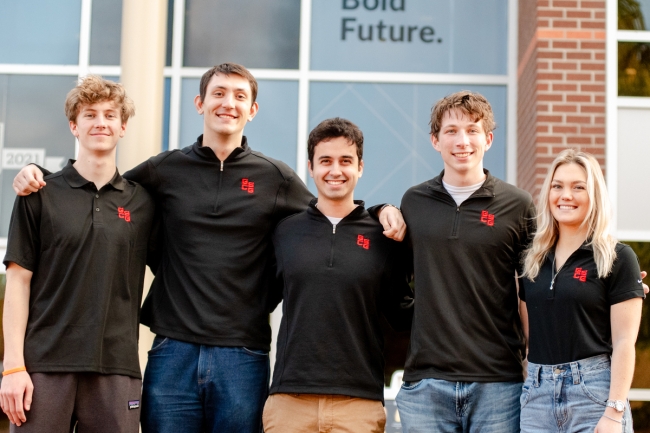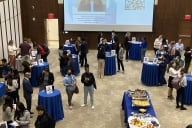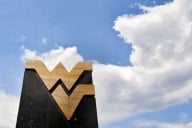You have /5 articles left.
Sign up for a free account or log in.

Student leaders in the Gonzaga Sport Consulting Group gain experience with high-level sports brands through consulting work.
Mateo Valdez
For many students, working for their dream company after graduation can feel like a distant goal. One sophomore at Gonzaga University in Spokane, Wash., decided to bring experiential learning in sports management to campus and founded the Gonzaga Sport Consulting Group.
The program creates small teams of student consultants to provide high-level sports brands with pro bono business strategy ideas and tools, giving learners real-life experiences to promote the future career success.
The background: Staff at Gonzaga wanted to provide improved postgraduate career-readiness opportunities and skills to students, so the School of Business Administration faculty elected to create more experiential learning spaces for students. Mateo Valdez, a recent graduate of Gonzaga, started the program in 2022, with support from professors John Correia and Gary Weber in the school of business.
A winter 2023 Student Voice survey by Inside Higher Ed, conducted by College Pulse, found nine in 10 students believe their programs of study should require some kind of experiential learning, and more than half said internships specifically should be required.
“Through combining challenging business projects for students to solve with a fun context like sports, GSCG students take on high amounts of project responsibilities and learn at a rapid pace, almost without realizing as they’re working and learning in a space that they love engaging with: sports,” explains Valdez, who also served as program coordinator.
How it works: Students apply to the program at the start of each semester. Those who are accepted get assigned to small teams of six, which are led by a peer project manager for the next eight weeks, focused on a specific project for a client.
All participants receive training before working with clients, instructing them on professionalism, presentation and research skills to ensure they’re well prepared to work on real-world projects. Students are also supported by faculty in the school of business, alumni and peer leaders who provide advice throughout the projects.
Over the years, students have engaged in digital marketing, ticketing strategy, data analytics, partnership strategy, customer experience and more.
Letting Students Lead
Other colleges and universities have created their own consulting groups to provide students with career experiences while enrolled.
At Utah Valley University, digital marketing students can participate in a semester-long experiential learning program, The Green House, that provides digital audits and strategies to local businesses. The Green House hires paid interns each term, with students committing to work 20 hours per week for $12.75 an hour.
American University in Washington, D.C., in 2020 launched a business consulting group, Kogod in Practice (named after the business school), for students, which places learners in co-op and pro bono consulting projects.
The program is funded in part by the school of business and through alumni donors, which is used to support the student experience with in-person work and travel to meet with clients.
The impact: Since it launched in 2022, over 60 students have participated in the program, working with sports brands across leagues including the National Football League, National Basketball Association, Major and Minor League Baseball, National Hockey League, National Collegiate Athletic Association, and Major League Soccer. The group has also supported the local Spokane Hoopfest Association.
In spring 2024, 40 students participated in the program working with clients such as the Toronto Blue Jays and the Los Angeles Kings. This fall, GSCG will partner with the Detroit Lions.
Through working in the program, students are indirectly and directly prepared to launch their careers after graduation, Valdez says, indirectly by building skills and gaining real-world experiences in working with companies. But more directly, many students have landed jobs and internships with their client companies through GSCG.
“We’ve also seen this model spark a beautiful culture of student-driven innovation [at Gonzaga], from having certain student consultants go beyond the scope of their work and do their own client outreach to get to work with their dream teams, and successfully landing them, to students leaving GSCG to build other programs at Gonzaga inspired by the largely student-driven success we’ve had at GSCG,” Valdez says.
Do you have a career prep tip that might help others encourage student success? Tell us about it.








